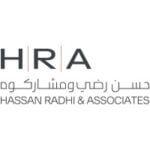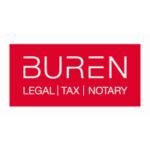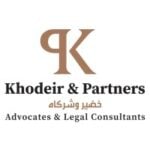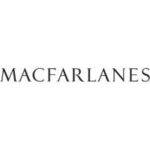-
What are the most common types of corporate business entity and what are the main structural differences between them?
The main types of corporate entities in France are the three following companies, all of which are limited liability companies:
The société anonyme (“SA”) is one of the most commonly corporate entity used by large businesses and listed companies. SAs are heavily regulated by the Commercial Code as most of their governance structure is prescribed by law. SAs are managed either by (i) a board of directors (conseil d’administration) composed of 3 directors at least and up to 18 directors, whom can be either legal or natural persons, as well as by a managing director (directeur général), who must be a natural person, or, alternatively, by (ii) a management committee (directoire), up to 5 members overseen by a supervisory board (conseil de surveillance) composed of 3 directors at least and up to 18 directors whom can be either legal or natural persons,. The minimum number of shareholders is 2 (7 if the SA is listed). The minimum capital requirement is EUR 37,000 and EUR 225,000 for listed SA’s.
The société par actions simplifiée (“SAS”) is a flexible corporate structure loosely regulated by the Commercial Code used by small and medium-sized enterprises (SMEs) as well as by larger companies. Such flexibility enables its shareholders to tailor the company to their own needs in terms of governance and management structure. The only required body is the chairman (président) who can be either a natural person or a legal entity. The by-laws may also provide for the appointment of one or several managing directors (directeur général) or deputy managing director (directeur general délégué), who may be entrusted with the same authority and powers as that of the chairman. Additional governance bodies, such as a board of directors, may be created to address any particular needs. An SAS can be set up with a single shareholder (being a natural person or a legal entity). There is no minimum capital requirement to incorporate an SAS. An SAS cannot pursue a public offering of securities or be listed on public markets.
The société à responsabilité limitée (“SARL”), which is commonly used for small and mid- size businesses is a hybrid entity borrowing features from both partnerships and corporations. The management structure of an SARL, its share capital composition and the transfer of its shares (parts sociales in the context of an SARL) are mainly prescribed by law. SARLs are run by one or several managers (gérants) who are solely natural persons, the number of which is set out in the by-laws of the company. Transfers of shares require the approval of a simple majority of the shareholders (unless the by-laws of the company require a more stringent majority) in the event of a transfer to a third party. SARLs can be set up with a single shareholder (being a natural person or a legal entity) with a maximum at 100 shareholders. There is no minimum capital requirement to incorporate an SARL. SARLs cannot be listed on public markets.
-
What are the current key topical legal issues, developments, trends and challenges in corporate governance in this jurisdiction?
The main current legal issues in corporate governance in France concern recent legislative developments deriving from European law as well as French law, regarding topics such as corporate responsibility and vigilance, sustainability, gender equality or emerging technologies. After a strong legal push for improving applicable standards regarding corporate responsibility, some scholars and politicians are now calling for more flexibility, notably in the context of artificial intelligence boom.
Regarding, the corporate responsibility of companies and vigilance duties the Directive on Corporate Sustainability Due Diligence (CS3D), adopted in 2024 aims to ensure that companies operating within the EU adhere to sustainability principles and take responsibility for their impacts on human rights and the environment such as prevention and mitigation measures, or identification and assessment of risks. French law predated in part such obligations thanks to both the Loi Sapin II adopted in 2016 and the duty of vigilance which have introduced heightened obligations in terms of governance, particularly with regard to the fight against corruption and human rights abuses. These laws require companies to put in place rigorous compliance programs and a risk mapping analysis and vigilance plan to be establish for companies over 5,000 employees in France or 10,000 employees worldwide in order to prevent risks of corruption and influence peddling. Executives are personally responsible for implementing these programs pending severe sanctions.
Regarding sustainability and ESG principles, the European directive on the publication of non-financial information, the Corporate Sustainability Reporting Directive (“CSRD”) adopted in 2022 and replacing the Non-Financial Reporting Directive (“NFRD”), requires companies to publish detailed information on their environmental, social and governance impact (“ESG” criteria) and introduces more stringent and standardized requirements for corporate sustainability reporting. The CSRD introduces several significant changes compared to the NFRD including the double materiality principle requiring companies to report on both the impact of their activities on sustainability issues (impact materiality) and the financial risks and opportunities arising from sustainability issues (financial materiality). The application of the CSRD’s requirements is phased based on company size and type with obligations applying from 2025 (for fiscal years starting January 1, 2024) for large listed companies, 2026 (for fiscal years starting January 1, 2025) for large non-listed companies and from 2027, with an optional two-year deferral for small and medium companies.
The rise of digital technologies such as artificial intelligence is also transforming corporate governance. The AI Act adopted in 2024 purports that transparency is a cornerstone of corporate governance in AI. Companies must in this regard ensure that AI systems are explainable and that their decision-making processes can be audited as well as develop compliance and risk management mapping.
For listed companies, after a long debate, it has been finally enacted to authorize the issuance of preference shares with multiple voting rights, subject to limitations described in Section 15.
-
Who are the key persons involved in the management of each type of entity?
In a SA, management depends on the structure chosen. In a “monistic” or classical SA with a board of directors, the company is managed by a chairman of the board (président du conseil d’administration) presiding the board of directors of the company entrusted with the supervision of the managing director, who is responsible vis à vis third parties and is entrusted with the power to perform all acts of management in the interest of the company unless as otherwise restricted by bylaws limitations or law. Both the chairman and the managing director must be natural persons by virtue of law. In a dualistic SA with a management board and a supervisory board, the company is managed by the chairman of the management board (président du directoire) as well as appointed managing directors (if any) are entrusted with the power to perform all acts of management in the interest of the company unless as otherwise restricted by bylaws limitations or law, while the supervisory board has a supervisory role.
The SAS offers great organizational flexibility. Management is assured by a president, who represents the company vis à vis third parties and is entrusted with the power to perform all acts of management in the interest of the company unless as otherwise restricted by bylaws limitations or law. The company’s bylaws may also provide for the appointment of other management bodies, such as a managing director or a collegiate body such as a board of directors, depending on the needs of the business. SAS’s president or managing director may be either natural or legal persons, and their mode of appointment and powers are freely defined in the bylaws.
A SARL is managed by one or more managers, who must be natural persons and may be either shareholders or third parties. These managers represent the company vis à vis third parties and may perform all acts of management in the interest of the company unless as otherwise restricted by bylaws limitations or law.
-
How are responsibility and management power divided between the entity’s management and its economic owners? How are decisions or approvals of the owners made or given (e.g. at a meeting or in writing)?
The division of management responsibilities and powers between management and economic owners varies according to the legal structure of the entity.
In a monistic or classical SA management powers are mainly exercised by the board of directors, which determines the company’s strategic direction and oversees its implementation. The board appoints a managing director, who is responsible for the day-to-day management of the company (Please see Section 3).
In a dualistic SA, the management is divided between a management board, which handles the day-to-day operations, and a supervisory board, which oversees the management board (Please see Section 3).
However, major strategic decisions, such as capital increases or mergers, are taken in shareholders general meetings (assemblée générale), which acts as the company’s sovereign body. In both types of SA, either monistic or dualistic, the shareholders make decisions during general meetings either physically, virtually or through written consultation. Unanimous written decisions are not available for this type of company.
In a SAS, management is freely organized by the Bylaws. A President, appointed by the shareholders, has the broadest powers to act on behalf of the company, but the Bylaws may provide for other management bodies, such as a managing director or an board of directors (Please see section 3).
Major decisions, such as amendments to the bylaws or increase of the share capital of the company, are taken by the shareholders in shareholder’s meeting, through written consultation or unanimous written decisions, depending on the company’s bylaws.
In a SARL, management is exercised by one or more managers, who are responsible for the day-to-day management of the company (please see Section 3). Major decisions, such as the approval of annual accounts, are taken by the shareholders at shareholders meetings, with voting rights proportional to the number of shares held. Decisions by shareholders can be made in shareholder’s meeting, through written consultation or unanimous written decisions, depending on the company’s bylaws.
-
What are the principal sources of corporate governance requirements and practices? Are entities required to comply with a specific code of corporate governance?
Corporate governance requirements and practices are derived from a combination of legal obligations and soft law instruments.
In France, the primary legal provisions governing corporate governance are found in Civil Code (Code civil), the Commercial Code (Code de commerce), the Monetary and Financial Code (Code Monétaire et Financier) and the rules promulgated by the Autorité des Marchés Financiers (“AMF”, the French securities regulator). The provisions included in these bodies of regulations comprise the various requirements of European law regarding corporate governance.
Secondly, corporate governance codes, although not legally binding, play a major role in defining best practices. The Afep-Medef Code, for instance, is widely used by listed companies, with recommendations on topics such as the composition and role of the board, executive remuneration, and corporate social responsibility (CSR). This code operates on an “apply or explain” basis for listed companies, allowing companies to depart from certain recommendations provided they justify their choices. The Middlenext Code, for its part, is aimed at medium-sized listed companies and also adopts this principle.
Although listed companies are not obliged to comply with corporate governance codes, they must specify in their governance report whether they do and, if so, justify any deviations from its recommendations.
-
How is the board or other governing body constituted? Does the entity have more than one? How is responsibility for day-to-day management or oversight allocated?
The SA can adopt two distinct governance structures: monistic (with a board of directors) or dualistic (with a management board and supervisory board). In a monistic SA, the board of directors is the collegiate management body and determines the company’s major orientations as well as oversees their implementation. Day-to-day management is the responsibility of managing director, who may be separate from or combine the functions of chairman of the board of directors. (Please see Sections 3 and 4).
In a dualistic structure, the supervisory board oversees the actions of the management board, ensuring that decisions align with the company’s objectives and legal requirements. Day to day management is entrusted with a management board. (Please see Sections 3 and 4).
The SAS, can also have several management bodies. The only mandatory governing body is the president, who represents the company and ensures its management. Additional governing bodies, such as a board of directors, managing director, or ad hoc committees, can be created as specified in the bylaws in addition to the president. This freedom makes it possible to adapt governance to the specific needs of the company. (Please see Sections 3 and 4).
As per the SARL, the law does not provide for a board of directors. Day to day management is exercised by one or more managers. (Please see Sections 3 and 4).
-
How are the members of the board appointed and removed? What influence do the entity’s owners have over this?
Members of the board of directors or the supervisory board of a SA are appointed by the shareholders at the annual general meeting. This power of the shareholders is enshrined in law and cannot be redacted from the bylaws. Candidates must be proposed by the board of directors or the supervisory board, and resolutions must include information on the candidates, such as the candidates’ professional references and mandates. For listed companies, soft law (such as the Afep-Medef Code) recommends greater transparency on the nomination procedure, including biographical notices and justifications for the candidates’ competencies, independence, and absence of conflicts of interest.
In case of a vacancy (e.g., due to death or resignation), the board of directors or supervisory board may appoint a replacement on a provisional basis. This appointment must then be ratified by the next annual general meeting. With regard to removal, directors may be removed ad nutum or “at will” at any time by a shareholder’s meeting, without the need to justify the decision. However, removals deemed as abusive (e.g. if done in vexatious terms) may give rise to a civil claim for compensation.
The law does not require the establishment of a board, such as a board of directors or a supervisory board. The only mandatory organ in a SAS is the president. In this respect, the bylaws have a very broad freedom in order to provide for rules of appointments and removals. (Please see Sections 3, 4 and 6)
The law governing SARLs does not provide for board of directors in this type of companies.
-
Who typically serves on the board? Are there requirements that govern board composition or impose qualifications for board members regarding independence, diversity, tenure or succession?
The following developments concerning boards will concern, for the sake of clarity, the board of directors within monistic SAs which are the most frequent type of such companies compared to dualistic SAs with a supervisory board.
With respect to SAs, board of directors are composed of individuals or legal persons who are either elected by the shareholders or, in some cases, represent specific groups such as employees or stakeholders. While there are no strict legal requirements for qualifications, governance codes emphasize the importance of having a balanced board with diverse skills and expertise. Regarding listed companies, the Afep-Medef Code encourages boards to assess their needs in terms of competencies and to ensure that members are skilled to fulfil their roles effectively. In addition, boards must ensure that their directors are for some of them independent in certain cases as well as diverse in terms of genders.
With regard to diversity, French law imposes quotas to ensure gender diversity. For example, in companies with at least 250 employees and a turnover or total balance sheet of at least €50 million, the board must include at least 40% of members of each gender. These quotas are applicable to both listed and certain non-listed companies, with specific thresholds for implementation. (Please see Section 2).
In addition, when a company is over 500 employees, French law provides for employees of the company to elect representatives to the board. These representatives are not counted towards the maximum number of board members and have specific rules governing their tenure and renewal.
With regard to independence, the concept of independent directors is emphasized in governance codes such as the Afep-Medef Code. An independent director is defined as someone who does not have any relationship with the company, its group, or its management that could compromise their judgment. The recommended proportion of independent directors varies from at least one-third for companies with a controlling shareholder to at least half for companies with dispersed ownership.
Directors’ terms of office are limited to six years, renewable. If a seat becomes vacant, a replacement is appointed by the board of directors for the remainder of the term. To ensure continuity, companies may implement staggered renewals of board members, often referred to as “renewal by rotation” to ensure a diversity of profiles on the board of directors. Succession planning is increasingly recognized as a critical governance practice. The Afep-Medef Code recommends that boards establish succession plans for key executives and regularly review them. This ensures continuous, flexible management within the decision-making body.
-
What is the role of the board with respect to setting and changing strategy?
The board of directors plays a central role in defining and modifying the company’s strategy and is responsible for determining the company’s strategic orientations and ensuring that they are implemented in accordance with the company’s corporate interests with a focus on areas like corporate social responsibility (CSR).
The board of directors shall meet regularly to discuss the direction to be taken, and to ensure that the decisions taken by the management are in line with the company’s long-term objectives. Please note that French law recently removed references to cultural and sports considerations, which had been oddly added by the lawmakers to the board of directors oversight regarding strategic decisions of the company.
However, the board of directors cannot encroach on the powers of the executive management, which retains responsibility for the company’s day-to-day operations.
-
How are members of the board compensated? Is their remuneration regulated in any way?
The remuneration of members is allocated by the shareholders general assembly which may allocate a fixed amount to the board of directors as compensation for their activity. This amount is determined globally for all directors and is not linked to the company’s financial results. The allocation of this remuneration among directors is decided by the board of directors itself and not the shareholders general assembly.
Directors may receive exceptional remuneration for specific missions or mandates that go beyond their usual duties. Such remuneration must correspond to actual services rendered and must not be abusive. These exceptional remunerations are subject to the procedure of the related party agreements (conventions reglementées) which require the prior authorization of the board of directors and the approval of the shareholders general assembly regarding each of the agreements entered into the company and one of its directors.
Directors may be reimbursed for expenses incurred in the interest of the company, provided these are duly authorized by the board.
Please note that, in listed companies, the remuneration of directors is subject to additional transparency requirements under the “say on pay” mechanism. Shareholders must vote on the remuneration policy (ex-ante) and on the actual remuneration paid (ex-post).
-
Do members of the board owe any fiduciary or special duties and, if so, to whom? What are the potential consequences of breaching any such duties?
Members of the board of directors owe several fiduciary or special duties to the company with amongst them, the duty of loyalty (avoiding conflict of interests), duty of care (acting with diligence, prudence and competence which includes proper information regarding the decision making process), duty of vigilance (ensure that the company complies with legal and regulatory requirements), duty of confidentiality (to maintain the confidentiality of sensitive company information and not disclose it to unauthorized parties) which requires them to manage the business in the company’s best interests, while taking social and environmental issues into account. (Please see Section 9).
Should they fail to meet these obligations, directors may be held personally liable for civil damages caused to the company or its shareholders due to breaches of their duties as well as criminal liability in case of serious misconduct, such as fraud or embezzlement or misappropriation of corporate assets (abus de biens sociaux).
-
Are indemnities and/or insurance permitted to cover board members’ potential personal liability? If permitted, are such protections typical or rare?
Indemnities for board members are less common in France compared to other jurisdictions although they are not explicitly prohibited under French law. However, their implementation must comply with strict legal and regulatory requirements to avoid being classified as a misappropriation of corporate assets (abus de biens sociaux).
Insurance coverage for board members is more prevalent and is considered a standard practice in most SAs. These policies are typically referred to as Responsabilité Civile des Mandataires Sociaux (RCMS) or Directors and officers (D&O) liability insurances and are implemented and paid for by the company. RCMS insurance generally covers liabilities arising from civil claims, including errors, omissions, or negligence in the performance of board duties. However, it does not cover liabilities resulting from intentional misconduct or criminal acts.
-
How (and by whom) are board members typically overseen and evaluated?
Although there is no particular authority overseeing or evaluating the board members beside the shareholders in a shareholders general meeting, French law requires that the board evaluates its own composition, organization, and functioning. The results of this evaluation must be included in the annual report presented to the shareholders general meeting.
Shareholders have the power to appoint and revoke board members during the shareholders general meetings. This ensures that the board remains accountable to the shareholders in addition to their fiduciary duties vis à vis the company. (Please see Sections 7 and 11).
In listed companies, the AFEP-MEDEF Code recommends a periodic assessment of the board’s effectiveness. This assessment can be conducted internally or by an independent third party, focusing on directors’ contributions, decision-making processes, and governance. The chairman of the board ensures that the assessment is thorough and that all directors receive the necessary information for it.
-
Is the board required to engage actively with the entity’s economic owners? If so, how does it do this and report on its actions?
The board of a Société Anonyme is required to engage actively with the entity’s economic owners, i.e., the shareholders. This obligation stems from both legal requirements and best practices in corporate governance. The board of directors must act in the interest of the company and its shareholders, ensuring transparency, accountability, and effective communication. Shareholders have the right to participate in general meetings, where they can raise questions, vote on resolutions, and express their views on the company’s governance and strategy. The board is responsible for organizing these meetings and ensuring that shareholders are provided shareholders with timely and accurate information about the company’s financial performance, governance, and strategic direction in the form of mandatory reports of the board of directors to every annual shareholder’s meeting.
For listed companies especially, best practices, such as those outlined in the Afep Medef Code, recommend that the board engage in direct dialogue with significant shareholders while respecting the principle of equal treatment of all shareholders. The board may also interact with proxy advisors and financial analysts to address shareholder concerns and provide clarity on the company’s governance and strategy.
-
Are dual-class and multi-class capital structures permitted? If so, how common are they?
Multi-class capital structures are authorized under French law, mainly in unlisted SASs and SAs. They enable the creation of shares with specific rights, such as multiple voting rights.
In SAs double voting rights can be granted to shares held nominatively by a shareholder for more than two years as long as it is being provided within the bylaws. This provision is mandatory for listed SAs, except specifically ruled out by an extraordinary shareholder’s meeting with a two third majority. The issuance of shares with multiple voting rights is not allowed in SAs, as the law explicitly limits such rights to double voting rights only.
Please note that a recent law passed in 2024 has allowed for the issuance of multiple voting right tailored for SAs however, only upon an initial public offering, provided it is for a 10-year period and to the benefit of named beneficiaries. These multiple voting rights granted by such shares are deactivated in case of a vote on certain topics defined by law such as approval of annual accounts, approval of related party agreements or say on pay.
Unlike the SA, the SAS is not bound by the proportionality principle. The statutes can freely define the voting rights attached to shares, allowing for the creation of shares with multiple voting rights which is commonly seen on the market.
SARLs cannot issue negotiable securities, and the rights of the associates are represented by non-negotiable “parts sociales“.
-
What financial and non-financial information must an entity disclose to the public? How does it do this?
Listed SA must publish an annual financial report within four months of the end of their financial year as well as a half-yearly financial report must also be published within three months of the end of the first half-year. The annual financial report, prepared by the board of directors, includes the annual financial accounts (and consolidated accounts, if applicable), the management report, and a declaration of responsibility by those responsible for the report as well as the statutory auditors’ report on the financial statements. In addition to the aforementioned and since January 1st, 2025, any such annual financial report must also include a corporate governance report and a non-financial performance declaration (Declaration of Performance Extra-Financière) pertaining to certain information related to the impact of the company’s activities on environmental and social issues as well as measures taken to ensure compliance with human rights standards and policies and actions implemented to combat corruption and tax evasion, if the company crosses the required thresholds (a total balance sheet exceeding €20 million or net turnover exceeding €40 million and employing more than 500 permanent employees during the fiscal year).
Non-listed companies such as SARL, SAS and non-listed SA must file their annual accounts with the commercial court registry within one month of their approval by the shareholder’s general meeting which must occur no later than six month after the end of the financial year and issue a management’s report which is not made public. Additionally, please note that non-listed SA are also subject to prepare a non-financial performance declaration (Declaration of Performance Extra-Financière) if the company crosses the required thresholds (total balance sheet exceeding €100 million or net turnover exceeding €100 million, and employing more than 500 permanent employees during the fiscal year).
Please note that small and medium companies meeting specific thresholds can request confidentiality for their accounts or opt for simplified disclosure.
-
Can an entity’s economic owners propose matters for a vote or call a special meeting? If so, what is the procedure?
In French corporate law, shareholders have specific rights to propose matters for a vote or to request the convening of a special meeting.
In SA, shareholders holding at least 5% of the share capital can request the inclusion of points or resolutions on the agenda of a general meeting. For companies with a capital exceeding €750,000, the required percentage decreases progressively with 4% for the first €750,000, 2.5% for the tranche between €750,000 and €7,500,000 and 1% for the tranche above €15,000,000.
Requests must be submitted at least 25 days before the meeting and no later than 20 days after the publication of the meeting notice.
Additionally, shareholders representing at least 5% of the share capital can request the President of the commercial court to appoint a representative to convene a meeting if the board of directors or management fails to do so.
In SAS, the rules governing shareholder rights are determined by the company’s bylaws and shareholders must refer to the company’s bylaws to determine the thresholds and procedures for proposing matters for a vote.
As per SARL, the shareholders holding at least 5% of the share capital can request the inclusion of points or resolutions on the agenda of a general meeting. The request for such inclusion must be submitted in writing and comply with the formalities outlined in the company’s bylaws.
Shareholders representing at least one-tenth of the share capital can request the President of the commercial court to appoint a representative to convene a meeting if the management fails to act.
-
What rights do investors have to take enforcement action against an entity and/or the members of its board?
Investors have several rights to take enforcement action against either the company or the board of directors in the event of non-compliance with legal or contractual obligations.
As per actions against the company, shareholders can seek to void decisions taken by the shareholders general meeting which would violate mandatory legal provisions or the bylaws. Such actions occur notably in case of abuse of majority, when majority shareholders use their voting power to make decisions that are contrary to the company’s interest and solely benefit themselves or in case of abuse of minority where minority shareholders can be held accountable if they block decisions necessary for the company’s best interest without valid justification.
In addition, shareholders can also bring an individual action to seek compensation for personal damages distinct from those suffered by the company for which they must demonstrate that the damage is personal and separate from the harm caused to the company.
As per actions against board members or executives, shareholders can initiate an action on behalf of the company to hold board members or executives accountable for damages caused to the company due to their mismanagement or breaches of duty. This is known as the “action sociale ut singuli.” This action can only be exercised if the company itself, through its legal representatives, fails to act in its best interest. Such action ut singuli can target directors, managers, or other executives for breaches of legal provisions, the bylaws or mismanagement.
Please note that any actions in responsibility against directors or managers must be initiated within three years from the date of the harmful act or its discovery.
-
Is shareholder activism common? If so, what are the recent trends? How can shareholders exert influence on a corporate entity’s management?
Shareholder activism is an increasingly common phenomenon, particularly in listed companies. This trend is supported by evolving legal frameworks in Europe and France and societal expectations, which encourage shareholders to play a more active role in corporate decision-making. In France, particularly, shareholder activism has been shaped by specific cultural and legal factors, including a traditionally centralized governance structure and the growing importance of societal concerns such as environmental, social, and governance (ESG) issues.
Shareholders have multiple rights offered under French law in order to exert influence over the management.
Shareholders can exercise their voting rights, propose resolutions to be discussed and voted on during shareholders general meetings, engage in direct dialogue with management to express their concerns and influence corporate strategy, use public campaigns, including media and social platforms, to pressure management and rally support from other investors or even initiate legal actions to challenge management decisions or seek redress for perceived violations of their rights. (Please see Section 16)
-
Are shareholder meetings required to be held annually, or at any other specified time? What information needs to be presented at a shareholder meeting?
SA and SAS are required to hold a shareholders general meeting at least once a year, within six months of the end of the financial year. This meeting enables shareholders to review the company’s management over the past year, to approve the annual financial statements, decide on the appropriation of earnings, and elect or re-elect directors.
Similarly, SARLs must hold at least one shareholders general meeting to approve the financial statements within six months of the fiscal year-end.
If this deadline cannot be met for legitimate reasons, the company may request an extension from the president of the commercial court. Failure to hold the shareholder’s general meeting within the prescribed timeframe can lead to legal consequences, such as the possibility for the public prosecutor or any shareholder to request the President of the commercial court to compel the meeting.
The information and documents to be presented at a shareholder’s general meeting vary depending on the type of meeting (e.g., ordinary or annual shareholder’s general meeting, shareholder’s extraordinary general meeting). The annual, required, shareholders’ general meeting would need to include the financial statements (balance sheet, income statement, and annexes), a management report, the statutory auditors’ report on the financial statements and any consolidated accounts (if any), the text of the resolutions to be voted on, including those proposed by shareholders as well as any additional documents necessary for shareholders to make informed decisions.
Extraordinary shareholder’s meetings would require special reports related to specific operations, such as capital increases or mergers from both the board of directors or president for an SAS and the specially appointed auditors for each of the specific operations.
Shareholders’ meetings, whether ordinary or extraordinary, must be convened by the company’s governing bodies or, in certain cases, upon request by the shareholders themselves, provided they hold at least 5% of the capital. The meeting must be convened within the timeframe stipulated by law, i.e. at least 15 days before the date of the meeting for listed companies (Please see Section 17).
-
Are there any organisations that provide voting recommendations, or otherwise advise or influence investors on whether and how to vote (whether generally in the market or with respect to a particular entity)?
Yes, there are specialized agencies, known as “proxy advisors”, which provide institutional investors with voting recommendations. These agencies analyze the resolutions submitted to the shareholders general meetings of listed companies and make recommendations on how to vote.
The influence of these agencies on voting decisions is significant, even though they are not shareholders themselves. Their role is to provide analysis and advice to facilitate decision-making by institutional investors, who are often faced with a large number of resolutions to consider in a short timeframe.
The activity of proxy advisors is framed by French law which imposes rules on transparency and the management of conflicts of interest. These agencies must publish a code of conduct and report on its application. They must also inform their clients of any conflicts of interest and the measures taken to manage them, with the aim of enhancing transparency and avoiding any undue influence.
-
What role do other stakeholders, including debt-holders, employees and other workers, suppliers, customers, regulators, the government and communities typically play in the corporate governance of a corporate entity?
Other stakeholders, such as employees, debt holders, suppliers, customers, as well as regulators and public authorities, play an increasingly important role in corporate governance. French law provides that a company must be managed in its corporate interests, while taking into consideration the social and environmental challenges of its business, which includes the interests of non-shareholder stakeholders. This inclusive approach enables the concerns of these stakeholders to be better integrated into governance decisions.
Employees can influence corporate strategy, notably through social and economic committees or through the presence of directors representing employees on the board of directors. This type of representation strengthens the integration of social concerns into company management. (Please see Section 8).
On the other hand, regulators impose and monitor adherence to laws and regulations, such as financial reporting standards, environmental laws, and labor laws. For example, in France, the Autorité des marchés financiers (AMF) oversees corporate governance practices and publishes annual reports to ensure transparency and compliance. Regulators may impose civil or administrative sanctions on corporate leaders for non-compliance, as seen in sectors like finance and health but also issue guidelines or codes of conduct, such as the OECD Principles of Corporate Governance, which emphasize transparency, accountability, and sustainability.
Governments also exerts influence on corporate governance as they establish the legal framework within which companies operate, such as corporate laws, tax regulations, and labor laws. For instance, the French government has implemented laws like the Loi Pacte to encourage corporate responsibility and stakeholder engagement. In state-owned enterprises (SOEs), governments act as shareholders and influence governance through strategic objectives. Governments may align corporate governance with broader policy goals, such as environmental sustainability or social equity.
In addition, professional associations may issue recommendations that influence corporate governance practices, particularly on issues relating to corporate social responsibility. These recommendations can guide the decisions of institutional investors and contribute to the implementation of good governance practices.
-
How are the interests of non-shareholder stakeholders factored into the decisions of the governing body of a corporate entity?
The interests of non-shareholder stakeholders are taken into account in the decisions of corporate management bodies, particularly since the adoption of the Loi Pacte in France. Stakeholders, in this context, often referred to as “parties prenantes” in French, include any individuals or groups affected by a company’s activities. These may encompass employees, customers, suppliers, creditors, local communities, and even future generations.
French law provides that a company must be managed in its corporate interests while taking into account the social and environmental challenges of its activity. This includes the interests of employees, suppliers, customers and local communities. (Please see Section 22).
Governing bodies, such as the board of directors must ensure that the company’s strategic orientations take these issues into account. French law provides that the board of directors is responsible for determining the direction of the company’s business, while taking into account the social and environmental issues involved as they are required to disclose such information regarding their activities in their annual reports (Please see Section 16).
Some companies also set up stakeholder advisory committees to help identify and integrate social and environmental issues into corporate strategy. These committees can play an advisory and warning role for management, particularly with regard to social or environmental risks that could have an impact on the company.
-
What consideration is typically given to ESG issues by corporate entities? What are the key legal obligations with respect to ESG matters?
ESG (Environmental, Social, and Governance) issues are central to corporate governance and operations. These issues encompass a wide range of factors, including environmental sustainability, social responsibility, and governance practices. They must assess and reduce their carbon footprint, comply with environmental regulations and adopt sustainable practices in their activities. These issues are also integrated into investment strategies, thanks in particular to mechanisms such as extra-financial reporting, which require companies to publish a declaration of extra-financial performance (Please see Section 16).
In addition, multiples bodies of regulation have been recently introduced by the European Union to strengthen to emphasis on environmental, social, and governance aspects of corporate governance (Please see Section 2).
-
What stewardship, disclosure and other responsibilities do investors have with regard to the corporate governance of an entity in which they are invested or their level of investment or interest in the entity?
Investors, particularly institutional investors and asset managers, have specific stewardship, disclosure, and other responsibilities in terms of managing, informing and monitoring the companies concerning the corporate governance of entities in which they are invested. These investors must adopt a shareholder engagement policy that defines how they integrate engagement into their investment strategy, taking into account financial and non-financial performance, as well as social, environmental and governance issues. This policy must be made public and communicated to investors on a regular basis.
They are also required to report annually to institutional investors on how their investment strategy complies with agreements and contributes to the medium- and long-term performance of assets under management.
-
What are the current perspectives in this jurisdiction regarding short-term investment objectives in contrast with the promotion of sustainable longer-term value creation?
Current investment outlook shows a shift towards long-term, sustainable value creation, while integrating short-term profitability considerations. This shift is particularly visible in recent reforms and new legislative expectations, notably the European Union’s CSRD directive.
In France, the perspectives on short-term investment objectives and long-term value creation are evolving, driven by regulatory changes, market trends, and societal expectations. While short-termism remains a challenge, initiatives such as the Shareholders’ Rights Directive II, CSR obligations, and ESG integration are paving the way for a more sustainable and balanced approach to investment. These developments highlight the importance of aligning financial performance with broader social and environmental goals to ensure the long-term success of businesses.
In this respect, institutional investors also play a central role in this dynamic, becoming key players in the promotion of responsible and sustainable governance. These investors now include ESG criteria in their investment and engagement strategies. They encourage dialogue with company management to promote more responsible corporate governance. Transforming their role from limited to the search for profitability to promotion of the long-term viability and sustainability of the companies in which they invest.
While deregulation is increasing in numerous jurisdictions, France and UE shall find the right balance to preserve the competitiveness of their corporate legal framework.
France: Corporate Governance
This country-specific Q&A provides an overview of Corporate Governance laws and regulations applicable in France.
-
What are the most common types of corporate business entity and what are the main structural differences between them?
-
What are the current key topical legal issues, developments, trends and challenges in corporate governance in this jurisdiction?
-
Who are the key persons involved in the management of each type of entity?
-
How are responsibility and management power divided between the entity’s management and its economic owners? How are decisions or approvals of the owners made or given (e.g. at a meeting or in writing)?
-
What are the principal sources of corporate governance requirements and practices? Are entities required to comply with a specific code of corporate governance?
-
How is the board or other governing body constituted? Does the entity have more than one? How is responsibility for day-to-day management or oversight allocated?
-
How are the members of the board appointed and removed? What influence do the entity’s owners have over this?
-
Who typically serves on the board? Are there requirements that govern board composition or impose qualifications for board members regarding independence, diversity, tenure or succession?
-
What is the role of the board with respect to setting and changing strategy?
-
How are members of the board compensated? Is their remuneration regulated in any way?
-
Do members of the board owe any fiduciary or special duties and, if so, to whom? What are the potential consequences of breaching any such duties?
-
Are indemnities and/or insurance permitted to cover board members’ potential personal liability? If permitted, are such protections typical or rare?
-
How (and by whom) are board members typically overseen and evaluated?
-
Is the board required to engage actively with the entity’s economic owners? If so, how does it do this and report on its actions?
-
Are dual-class and multi-class capital structures permitted? If so, how common are they?
-
What financial and non-financial information must an entity disclose to the public? How does it do this?
-
Can an entity’s economic owners propose matters for a vote or call a special meeting? If so, what is the procedure?
-
What rights do investors have to take enforcement action against an entity and/or the members of its board?
-
Is shareholder activism common? If so, what are the recent trends? How can shareholders exert influence on a corporate entity’s management?
-
Are shareholder meetings required to be held annually, or at any other specified time? What information needs to be presented at a shareholder meeting?
-
Are there any organisations that provide voting recommendations, or otherwise advise or influence investors on whether and how to vote (whether generally in the market or with respect to a particular entity)?
-
What role do other stakeholders, including debt-holders, employees and other workers, suppliers, customers, regulators, the government and communities typically play in the corporate governance of a corporate entity?
-
How are the interests of non-shareholder stakeholders factored into the decisions of the governing body of a corporate entity?
-
What consideration is typically given to ESG issues by corporate entities? What are the key legal obligations with respect to ESG matters?
-
What stewardship, disclosure and other responsibilities do investors have with regard to the corporate governance of an entity in which they are invested or their level of investment or interest in the entity?
-
What are the current perspectives in this jurisdiction regarding short-term investment objectives in contrast with the promotion of sustainable longer-term value creation?





















